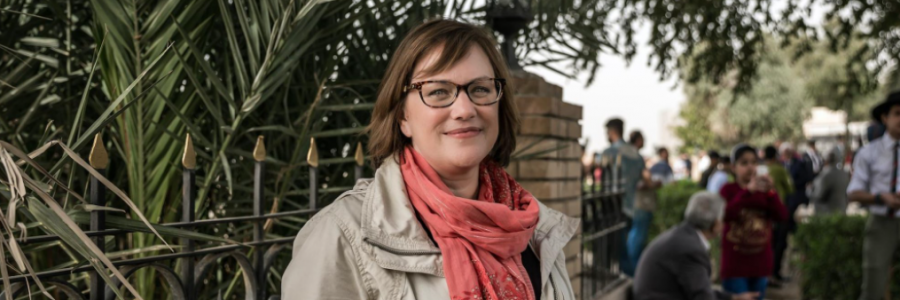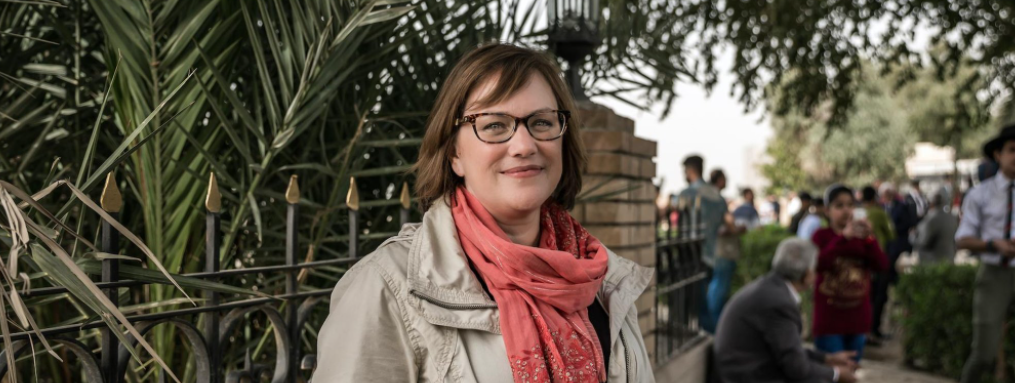
How the Falcons fooled the Isis


President Donald Trump declared “ The United States brought the world’s number one terrorist leader to justice”. After a 2018 raid by US special forces which resulted in the death of Abu Bakr al- Baghdadi, the leader of Isis.
Abu Ali al-Basri’s mole within Isis who had provided information that lead to the attack.
Margaret Coker, Pulitzer Prize-finalist, former New York Times Baghdad bureau chief, in The Spymaster of Baghdad, reveals a moving, visceral, revelatory gripping story of the top-secret Iraqi intelligence unit that infiltrated the Islamic State, who were the heroes of the war against Isis that cost thousands of Iraqi lives, but which Trump claimed as a US victory. Her 90-hours of interviews with members of the Falcons, an Iraqi intelligence cell, which Coker credits with reversing the grand expansion plans of Isis and safeguarding Baghdad, as most stories of Isis take place in Iraq’s northern territories, where its self-declared caliphate metastasised. Coker focuses on the Shia majority capital and southern provinces where most volunteer fighters opposing Isis emerged from.
Coker reveals the trip back to life under Saddam, both in Iraq and outside- Abu Ali, the Falcon’s titular spymaster, was political exile in Sweden, After the 2003 invasion carnage and sectarian bloodshed, before occupying foreign troops left an unsteady Iraq led by a Shia government, to its own demons, including Isis, an al-Qaeda evolution whose murderous rampage across Syria and Iraq began in 2014.
The most brutal conflict of recent decades, the spymaster maps the struggle to develop the unit from scratch in challenging circumstances after the American invasion of Iraq in 2003, we follow the fraught relationship of two of his agents, the al-Sudani brothers – one undercover in Isis for sixteen long months, the other his handler, and we track a disillusioned scientist as she turns bomb-maker threatening the lives of thousands.
Coker challenges the conventional view that Western coalition forces defeated Isis and reveal a page turning story of unlikely heroes, unbelievable courage with spycraft.
Coker tells the story through two families who end up on divergent post-Saddam trajectories, both eventually connected through the work of the Falcons with principal characters Harith and Munaf, both spies and sons of a working-class Shia family from Baghdad’s Sadr City, presented as vibrant and , multi-faceted neighbourhood.
On the other side of the Isis fight, is a well-off family of Sunni academics, the Kubalsis, who sees their fortunes dip after the Sunni dictator Saddam is ousted, and their daughter Abrar is later radicalise online and joins Isis. Coker tells us what drove a respectable young scientist to join murderous fanatics, armed with the ingredients to make chemical weapons.
Coker also reveals the bravery of undercover agent Harith, as he spends over a year foiling attacks on Baghdad by posing as a Jihadi and living a tough existence among Isis recruits before paying the ultimate price. His handler, is his brother, Munaf, a fraternal war-drama.
Harith’s determination to see out his mission as driven in large part buy a desire to redeem himself in the eyes of his family for a youthful dalliance with a Kurdish woman and dropping out of university.
The Falcons fool Isis and Abu Ali, into believing that Harith has been causing havoc in Baghdad by simply issuing press releases falsely reporting carnage and casualties, which the Jihadis seemingly did not bother to fact-check.
The Spymaster of Baghdad by Margaret Coker, Viking D£20, 336 pages.
